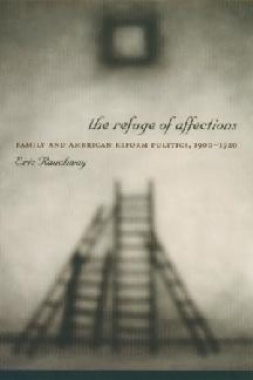The Progressives—those reformers responsible for the shape of many American institutions, from the Federal Reserve Board to the New School for Social Research—have always presented a mystery. What prompted middle-class citizens to support fundamental change in American life? Eric Rauchway shows that like most of us, the reformers took their inspiration from their own lives—from the challenges of forming a family.
Following the lives and careers of Charles and Mary Beard, Wesley Clair and Lucy Sprague Mitchell, and Willard and Dorothy Straight, the book moves from the plains of the Midwest to the plains of Manchuria, from the trade-union halls of industrial Britain to the editorial offices of the New Republic in Manhattan. Rauchway argues that parenting was a kind of elitism that fulfilled itself when it undid itself, and this vision of familial responsibility underlay Progressive approaches to foreign policy, economics, social policy, and education.
- Contents
- Acknowledgments
- Abbreviations and Manuscript Citations
- Introduction
- 1. Dorothy Whitney and Willard Straight
- 2. Mary Ritter and Charles Beard
- 3. Lucy Sprague and Wesley Clair Mitchell
- 4. War and the Progressive Family
- 5. The Narrative of Progress Versus the Logic of Events
- Epilogue: The Rise and Fall of the Rise of American Civilization; or, a Further Parable on the Narrative of Progress and the Logic of Events
- Notes
- Works Cited
- Index

